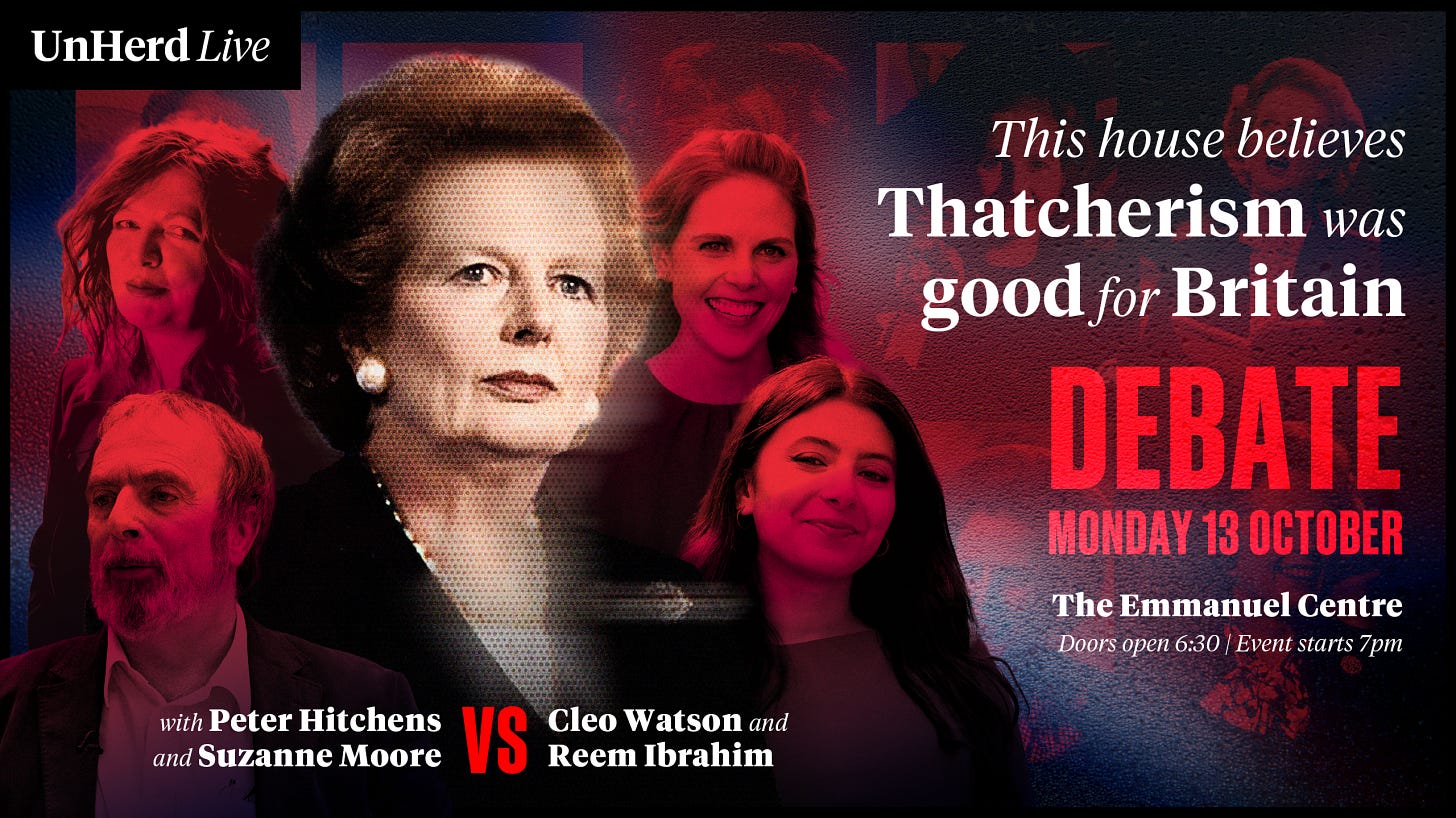Brit Cards
Plus: How can we get serious about growth?
In today’s newsletter:
What is ‘business-friendly socialism’?
Why isn’t the British economy growing?
The case for keeping the two-child benefit cap
There’s been a lot of justified concern about stagnant public sector productivity. According to the ONS total public service productivity has grown by just 0.3% since 1997. Not 0.3% per annum, 0.3% in total. In 27 years.
Fortunately, the current government are setting an excellent example of how to boost efficiency. Whereas the last Labour government took almost a decade to turn the optimism of the early days into a chronic poll deficit, factionalism and considering whether Andy Burnham can save them, this government has managed to speedrun the process in a little over a year.
It’s appropriate therefore that this week two late New Labour zombie policies have been in the news. The first was Andy Burnham floating reintroducing the 50p income tax rate. The second was Keir Starmer’s announcing plans to introduce a national ID card scheme.
Apparently inspired by a report by the think tank Labour Together, the new ‘BritCard’ will be obligatory for anyone seeking work in the UK – though interestingly it will not be required to claim benefits or access the NHS.
The main justification for the move is to clamp down on migrants illegally working in the UK and therefore reducing one of the ‘pull factors’ for small boat Channel crossings.
This may well be a smart move politically; ID cards are both popular with the public and rare opportunity for Starmer look tough on illegal immigration without immediately being outflanked by Reform of the Conservatives, which for their own reasons are opposed to the scheme.
As policy, however, there are reasons to doubt the scheme will have impact.
Firms are already required to do right to work checks on new employees and can face significant fines if they are found to have negligently hired someone illegally. There are some businesses which ignore the law, often in the informal or ‘grey’ economy offering work for cash in hand, but it seems unlikely the sort of employer who is unwilling to check a passport would scrupulously check a ‘BritCard’.
The experience of other European countries also casts doubt on the idea that ID cards do much to suppress the sort of sectors which attract illegal immigration. A recent report found that Britain has an unusually small informal economy by comparison to countries like Germany, France and Spain which have all had national ID cards for decades.
A case can be made for some sort of ID scheme as a means of simplifying the dizzying number of documents British citizens currently use to identify themselves. There may be something to be said for this, but if this is the goal why not make the scheme voluntary and let individuals decide?
Finally, there is a cost element that shouldn’t be ignored. Establishing the scheme is estimated to cost £400 million, but if past experience of government digital plans is anything to go by the final price tag could well be higher. While Keir Starmer may think that a few hundred million pounds is a reasonable price to pay to look tough on illegal immigration, in the context of an extremely tight fiscal situation the rest of us have reason to be more sceptical.
Daniel Freeman
Managing Editor
The best way to never miss out on IEA work, get access to exclusive content, and support our research and educational programmes is to become a paid IEA Insider.
IEA Podcast: Director of Communications Callum Price, Executive Director Tom Clougherty, and Managing Editor Daniel Freeman discuss Andy Burnham’s ‘business-friendly socialism’, calls for higher income tax, and plans for digital ID— IEA YouTube
Time for the Government to get serious about growth
Responding to the OECD Economic Outlook report, Tom Clougherty, Executive Director of the Institute of Economic Affairs, said:
The OECD’s forecast growth for the UK will barely sustain our ageing population; never mind delivering an upgrade in living standards. Worse still, the forecast of the highest inflation in the G7 will quickly eat away at any minor benefits we do feel.
This is a direct result of government policy to raise the cost of employment and make doing business more expensive. It’s time for the Government to get serious about growth. The Budget provides an opportunity for the Chancellor to fix the public finances and reform our tax system to lift the burden on the engine of the economy and boost economic dynamism.
Radical action in November combined with a doubling down on planning and regulatory reform, the kind of which is talked up but rarely acted on, is the only way out of this mess.
Inflation to surge and growth to drop in fresh economic blow to Reeves, The Independent
‘Out of her depth’ Rachel Reeves accused of ‘taking Britain down with her’, The Express
News and Views
Ministers ‘working 24/7’ on support for Jaguar Land Rover suppliers, Executive Director Tom Clougherty was quoted in The Times
Tom Clougherty, executive director of the Institute of Economic Affairs, the free market think tank, said: “There should be a very high bar against government involvement in cases like this. Not every misfortune can or should result in a taxpayer-backed response. I worry that since the pandemic, people and businesses have become too quick to look to the state for support — despite the grim reality of our fiscal situation. All the emphasis should be placed on a private sector response.”
It is growth, not welfare, that will end child poverty, Head of Media Reem Ibrahim wrote for CapX
The average cost of a house was around 2-3 times the average salary in the 1990s. Now, it is more like 10 times the average salary. Rents are increasing at a pace that far outstrips wage growth. Deregulating the planning system and allowing for the supply of housing to increase would sustainably alleviate pressure on millions of households.
How to Fix Britain | John Penrose | IEA Interview, Head of Media Reem Ibrahim interviews John Penrose, IEA YouTube
Britain is drowning in a sea of bad law, Head of Lifestyle Economics Dr Chris Snowdon wrote in The Critic
As Britain gradually wakes up to the consequences of living under a blanket of well-meaning but loosely worded legislation, the feel-good policies continue to wind their way through Parliament. The Public Office (Accountability) Bill, which had its first reading in the Commons last week, comes with a number of red flags.
Why America’s POOREST State is Richer Than Britain | Land of Opportunity Series, Director of Communications Callum Price interviews Andrew Barclay, entrepreneur and founder of Land of Opportunity, IEA YouTube
“It’s dangerously draconian”, Reem Ibrahim debated ID cards on GB News
This house believes Thatcherism was good for Britain, IEA Head of Media Reem Ibrahim and Cleo Watson will be debating Journalists Peter Hitchens and Suzanne Moore at the Emmanuel Centre on Monday 13th October.





